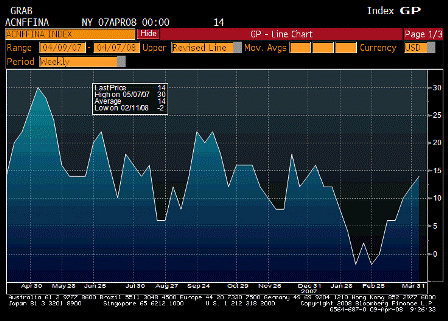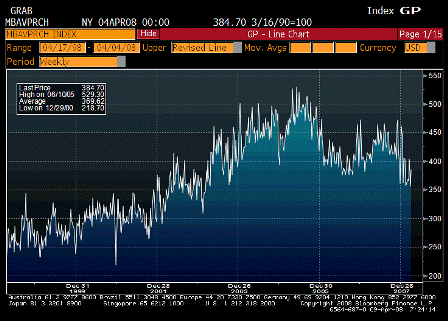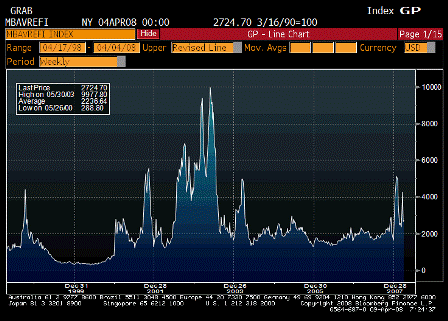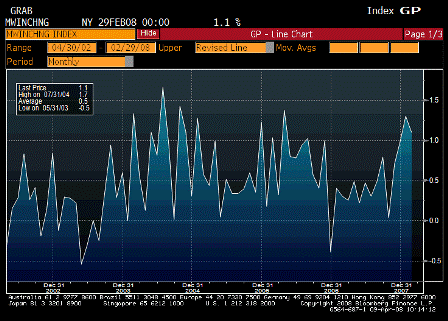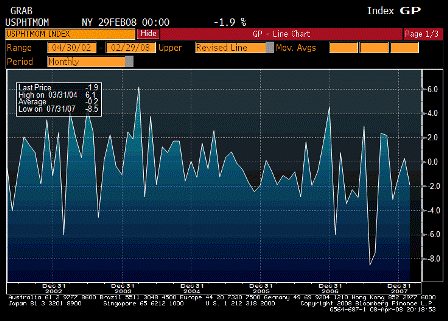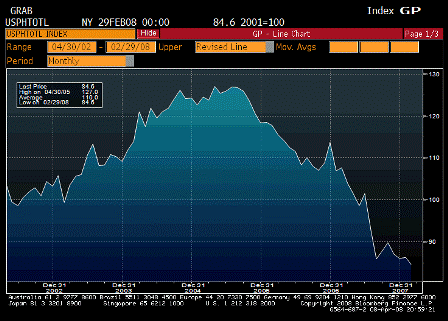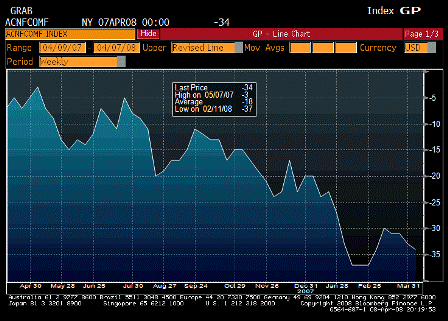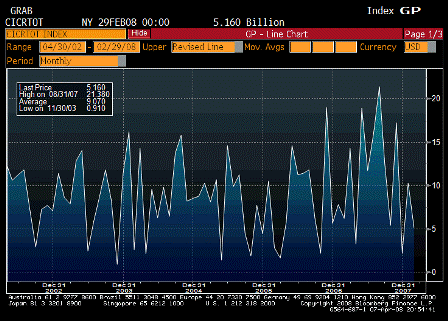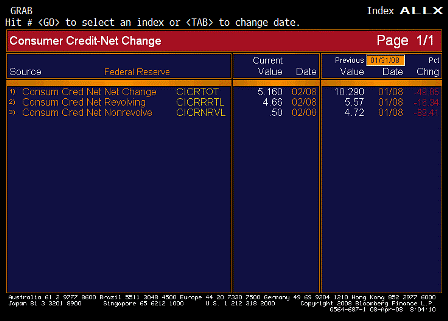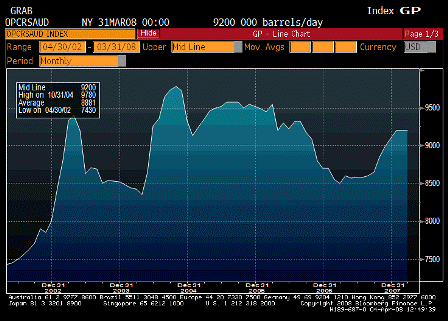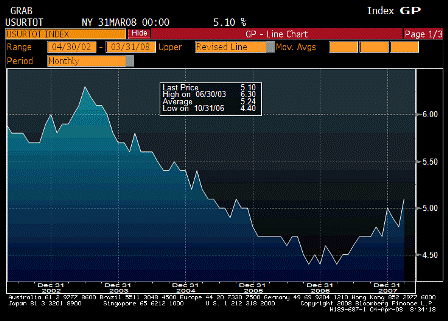
Unemployment Rate (Mar)
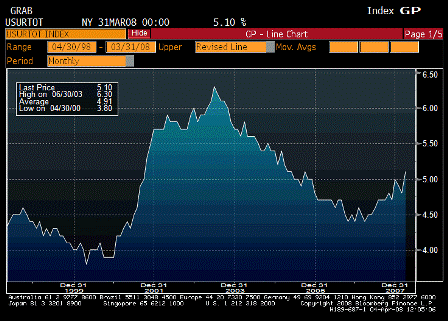
Unemployment Rate since 1998
| Survey |
5.0% |
| Actual |
5.1% |
| Prior |
4.8% |
| Revised |
n/a |
From Karim:
Very weak report. Among the high(low)lights:
Unemployment rate rises from 4.8% to 5.1%
NFP -80k; net revisions -67k (Jan and Feb now down -76k in each month)
Household survey shows 434k rise in number of unemployed
Construction -51k; manufacturing -48k;retail -12k; professional and business services -35k; education +42k; government +12k
Index of aggregate hours up 0.2% but down -1.2% annualized in Q1; all but assuring negative Q1 growth
Diffusion index up from 43.6 to 47.6
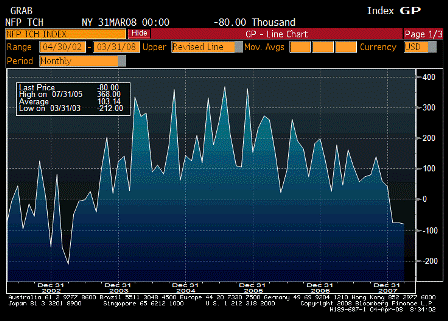
Change in Nonfarm Payrolls (Mar)
| Survey |
-50K |
| Actual |
-80K |
| Prior |
-63K |
| Revised |
-76K |
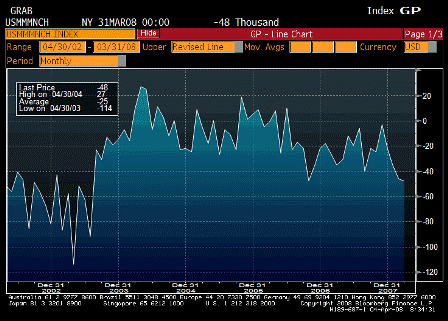
Change in Manufacturing Payrolls (Mar)
| Survey |
-35K |
| Actual |
-48K |
| Prior |
-52K |
| Revised |
-46K |
Payrolls lower than expected, previous months revised down some, confirming Q1 GDP somewhere around zero, and a flattish start for Q2 as well.
Not much of a market response, as this kind of weakness is no longer seen to threaten ‘market functioning’.
The perception of tail risk to market functioning is greatly diminished due to market perceptions that the Fed/Tsy is standing by to ‘write the check’ and that the checks won’t bounce.
Yes, they can be inflationary, and make the USD go down, but govt checks will clear and nominal demand can be sustained as desired.
The balance of risks are slowly returning to the more traditional/mainstream inflation vs growth and the appropriate interest rate policy to sustain the output gap necessary for price stability.
New data points for the Fed:
flat growth at best,
5.1% unemployment,
and yet demand is high enough to keep crude over $105, food prices skyrocketing, inflation at 4%, and the dollar falling like a stone and driving other import prices up.
And for as long as they can remember their forecasting models for prices have been unreliable at best.
Weaker growth with higher inflation likely tips their models to requiring a higher output gap (higher unemployment) to bring inflation down over their two year horizon.
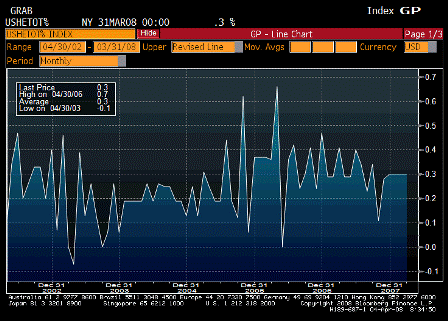
Average Hourly Earnings MoM (Mar)
| Survey |
0.3% |
| Actual |
0.3% |
| Prior |
0.3% |
| Revised |
n/a |
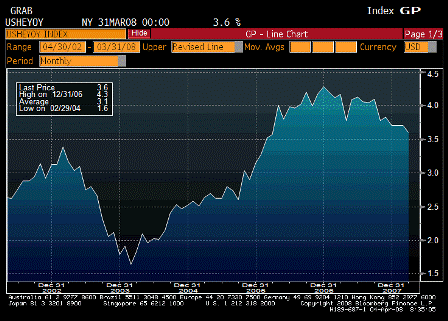
Average Hourly Earnings YoY (Mar)
| Survey |
3.6% |
| Actual |
3.6% |
| Prior |
3.7% |
| Revised |
n/a |
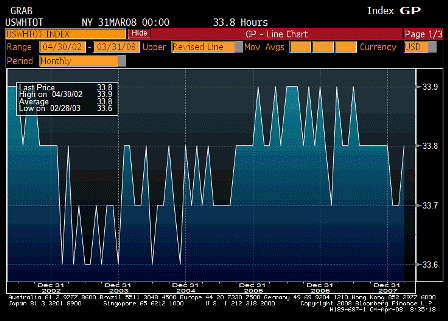
Average Weekly Hours (Mar)
| Survey |
33.7 |
| Actual |
33.8 |
| Prior |
33.7 |
| Revised |
n/a |
Never actually goes down.

